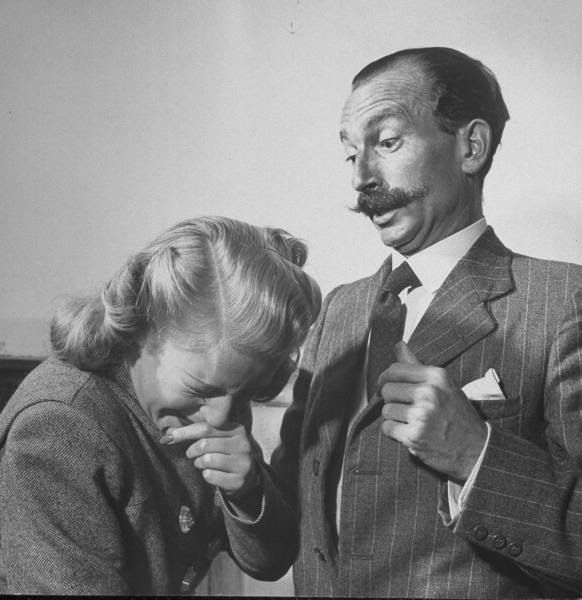
She laughed at his proposal for marriage, not just because he was the wrong type of man, but because he had the audacity to propose in the first place. After all, the two had only met a week ago and he was her boss. The nerve of him using his status in the company to presume he had any rights to a romantic engagement with Susie left her tickled to death. The shock he received was the best part; he had really believed that he had a chance. She couldn't help but laugh right in his face, right in the face of society, how dare they presume that these archaic roles would be carried out by her, or any woman, any longer.
**********************************************************************************
Jonathan Culler wrote that structuralism was based "on the realization that if human actions or productions have a meaning there must be an underlying system of distinctions and conventions which makes this meaning possible" (Culler, 56). Therefore, the picture above generates meaning through the societal context that it comes from. Even without words the image itself can contain a narrative due to the societal-gender signs and symbols that it contains. Culler also wrote that, "social and cultural phenomena are not simply material objects or events but objects or events with meaning, and hence signs" and "in studying signs one must investigate the system of relations that enables meaning to be produced" (Culler, 56). Therefore, the image above is only relevant to those of us who can recognize the system of rules that it stems from. In this case the rules are determined by American gender roles. The woman is laughing at the man and by the look on his face his ego is affected. He is shocked by her laughter because in American society it has historically been men who laugh at women, or rather, it is men who hold the power over women and therefore men tend to do the laughing. One does not have to know where this image comes from as long as they are aware of the system of rules that it stems from they can use a structuralist analysis of the picture to draw out its meaning.
This same logic can be applied to language itself as Culler wrote that, "The rules of English enable sequences of sound to have meaning; they make it possible to utter grammatical or ungrammatical sentences" (Culler, 56). The sounds are given meaning due to the meaning assigned to them by the system of the English language. Culler says the same is true for events such as soccer and marriage. Without the rules that state that two posts will be used as a goal, or two rings will represent a union, than the events just become material objects without meaning. The event occurring in the image above contains objects such as the business attire being worn by both the man and the woman. These signs dictate to those of who know about women-men relations that the two must work together, and most likely the man is the woman's boss. Although these gender roles are evolving as woman continue to gain more power and influence in American society, the picture is in black and white and that in of itself is a sign to those of us familiar with technology that the image is from the distant past. In the past women did not have as much social status and as a result most viewers of this image could assume that the woman has a lower status than the man, and as a result her laughter might be presumed as rebellion.
Culler would say that this rebellion is only observable if one is informed of the system that is being rebelled against. As a result knowledge is power, and structuralism is a literary movement that can give us power by making us aware of the rules that govern our language, our literature, and our society. Without knowledge of the rules one can never truly break them. The woman in this image is very aware of the rules that she is expected to conform to and in breaking those rules she has become a structurlaist of sorts as she redefines her own narrative with behavior (the laughter) that runs contrary to the norm. Or some might argue that her hysterics subscribe her to the rule because although a woman is not expected to laugh at her superiors (publicly), it can be said that women were considered to be nervous and flighty, incapable of reason. In this sense her laughter condemns her to the expectation that states she is not worthy of being taken seriously.
Works Cited
Culler, Jonathan. "The Linguistic Foundation." Literary Theory: An Anthology. Second Ed. Julie Rivkin & Michael Ryan. Malden, MA: Blackwell Publishing Ltd., 2004. 56-68. Print.

